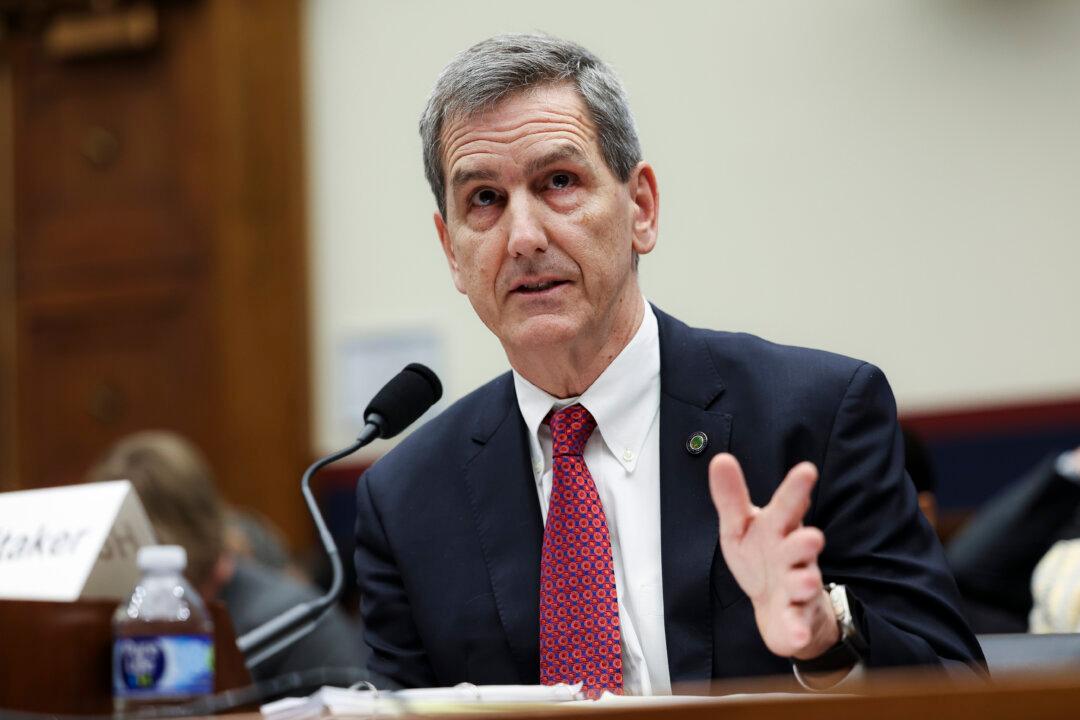Michael Whitaker, administrator for the Federal Aviation Administration (FAA), testified to the Senate on June 13 about Boeing’s implementation of the FAA’s 90-day safety plan, suggesting that the agency was too “hands-off” with the company prior to a January midair incident that triggered further scrutiny.
Mr. Whitaker appeared before the Senate Committee on Commerce, Science, and Transportation to discuss the FAA’s oversight of Boeing’s aviation manufacturing following the Jan. 5 Alaska Airlines incident, when a door panel blew off a 737 Max 9 shortly after takeoff.





